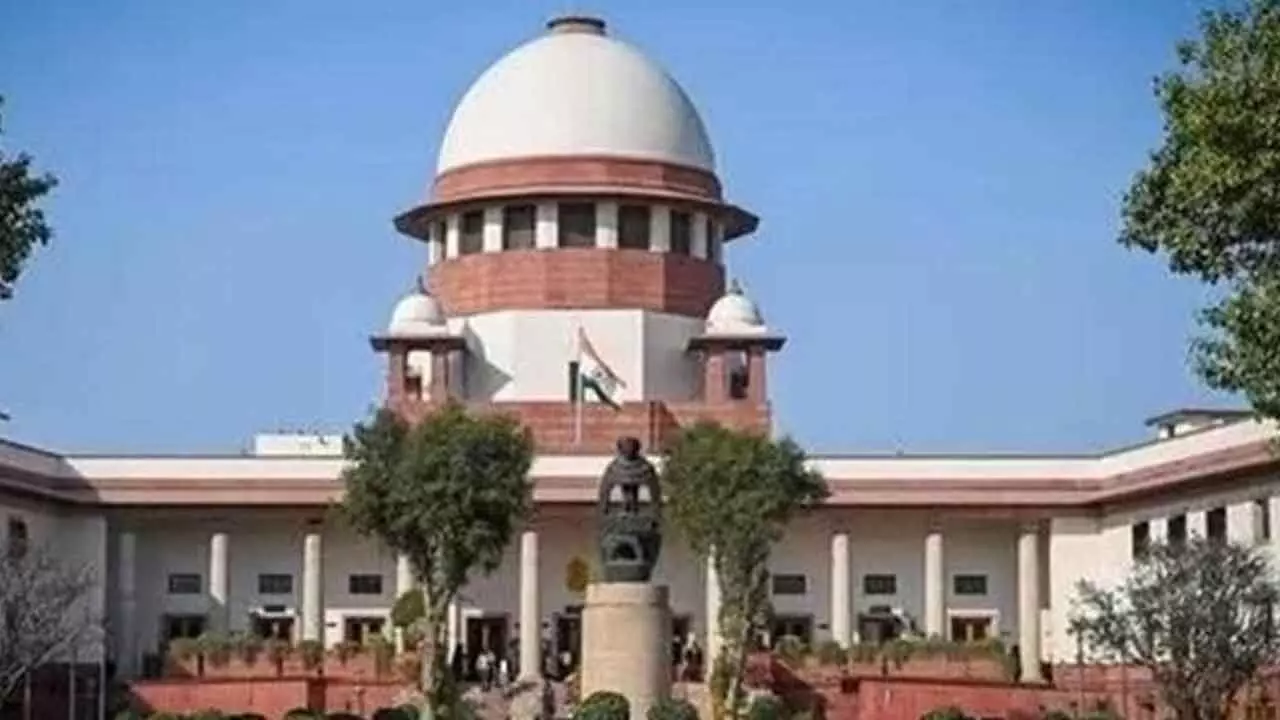Live
- Rachakonda police issues prohibitory orders in view of TGPSC tests
- SBI rescues sr citizen from `46L cyber fraud
- 12-yr-old dies of electrocution
- Installation of smart meters opposed
- State Cabinet expansion in focus as CM leaves for Delhi
- Need to reintroduce country’s forgotten pride: Bhagwat
- Pant shatters Iyer's IPL auction record, sold to Super Giants for Rs 27 cr
- Yuva Sangeetha Sammelanam held
- Dharani proves a bane for 25K families across State
- Reckless, Dangerous Arms Race
Just In
BREAKING : Supreme Court holds sub-classification of Scheduled Castes/ Scheduled Tribes Permissible ; Overrules EV Chinnaiah


In a landmark judgment, the Supreme Court on Thursday upheld the power of States to sub-classify reserved category groups, viz. the Scheduled Castes...
In a landmark judgment, the Supreme Court on Thursday upheld the power of States to sub-classify reserved category groups, viz. the Scheduled Castes and Scheduled Tribes (SC/STs), into different groups based on their inter se backwardness for extending the benefits of reservation [State of Punjab and ors vs Davinder Singh and ors].
A seven-judge Constitution bench of Chief Justice of India (CJI) DY Chandrachud with Justices BR Gavai, Vikram Nath, Bela M Trivedi, Pankaj Mithal, Manoj Misra, and Satish Chandra Sharma overruled the 2005 judgment of EV Chinnaiah v. State of Andhra Pradesh which had held that sub-classification of SC/STs is contrary to Article 341 of the Constitution which confers right on the President to prepare the list of SC/STs.
Justice Bela Trivedi dissented from the majority and ruled that such sub-classification is not permissible.
"The members of SC/ST are not often able to climb up the ladder due to the systemic discrimination faced. Article 14 permits sub-classification of caste. Court must check if a class is homogeneous or and a class not integrated for a purpose can be further classified," the Bench said pronouncing its judgment.
The Court upheld the validity of laws which provide for such sub-classification in Punjab, Tamil Nadu and other States.
The Court upheld the Punjab Scheduled Caste and Backward Classes (Reservation in Services) Act, 2006 in this regard.
Likewise, it upheld the Tamil Nadu Arunthathiyars (Special Reservation of Seats in Educational Institutions and of Appointments or Posts in the Services under the State within the Reservation for the Scheduled Castes) Act, 2009 which provides reservation for Arunthathiyars in educational institutions and State government positions within the State's 18% reservation for Scheduled Castes.

© 2024 Hyderabad Media House Limited/The Hans India. All rights reserved. Powered by hocalwire.com






